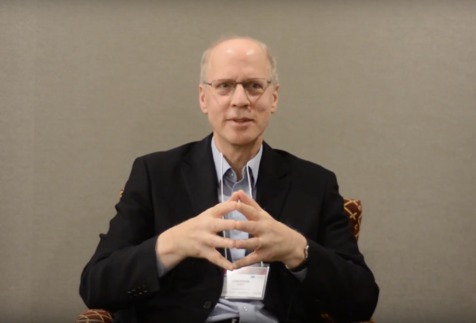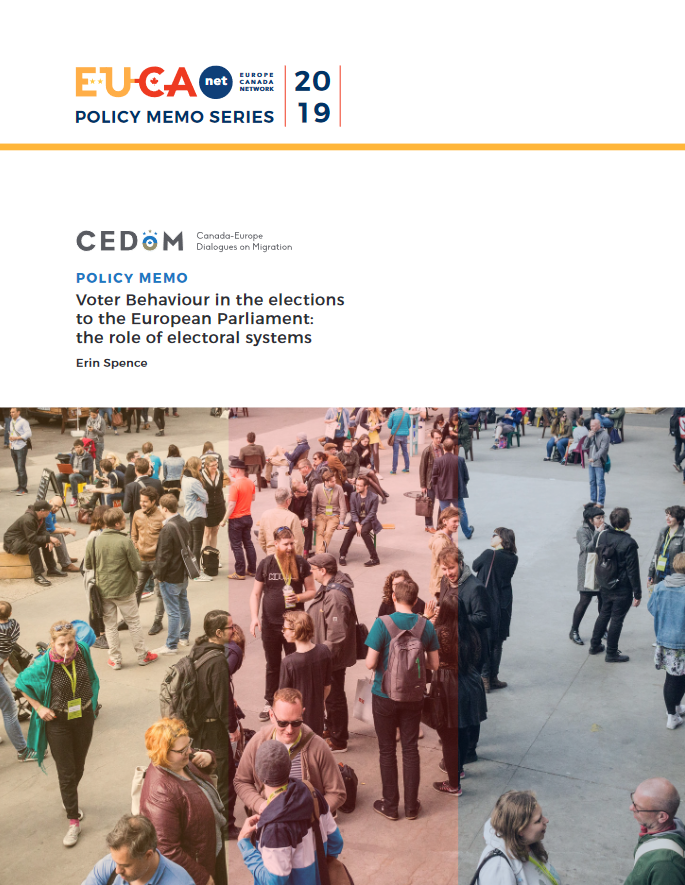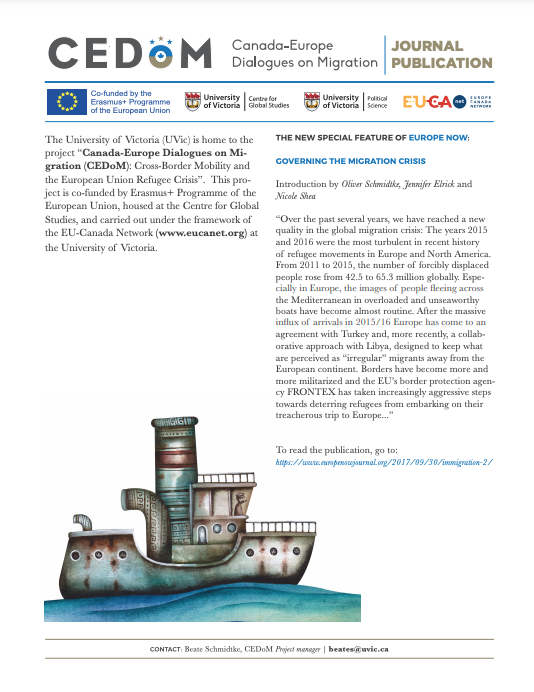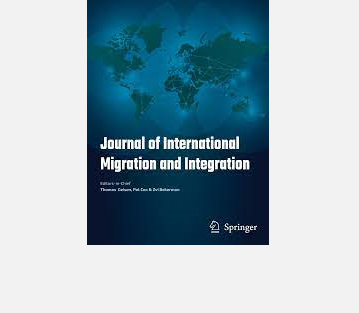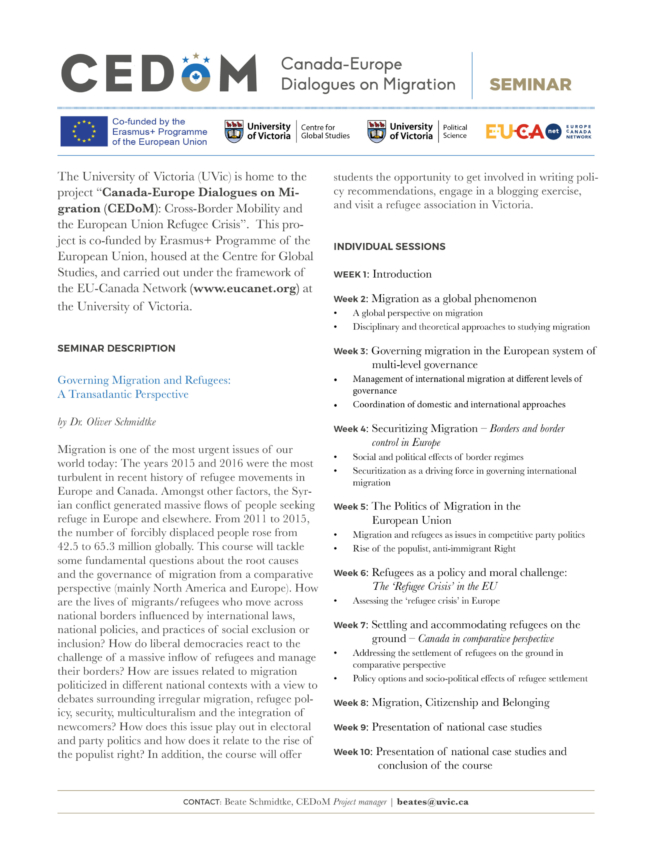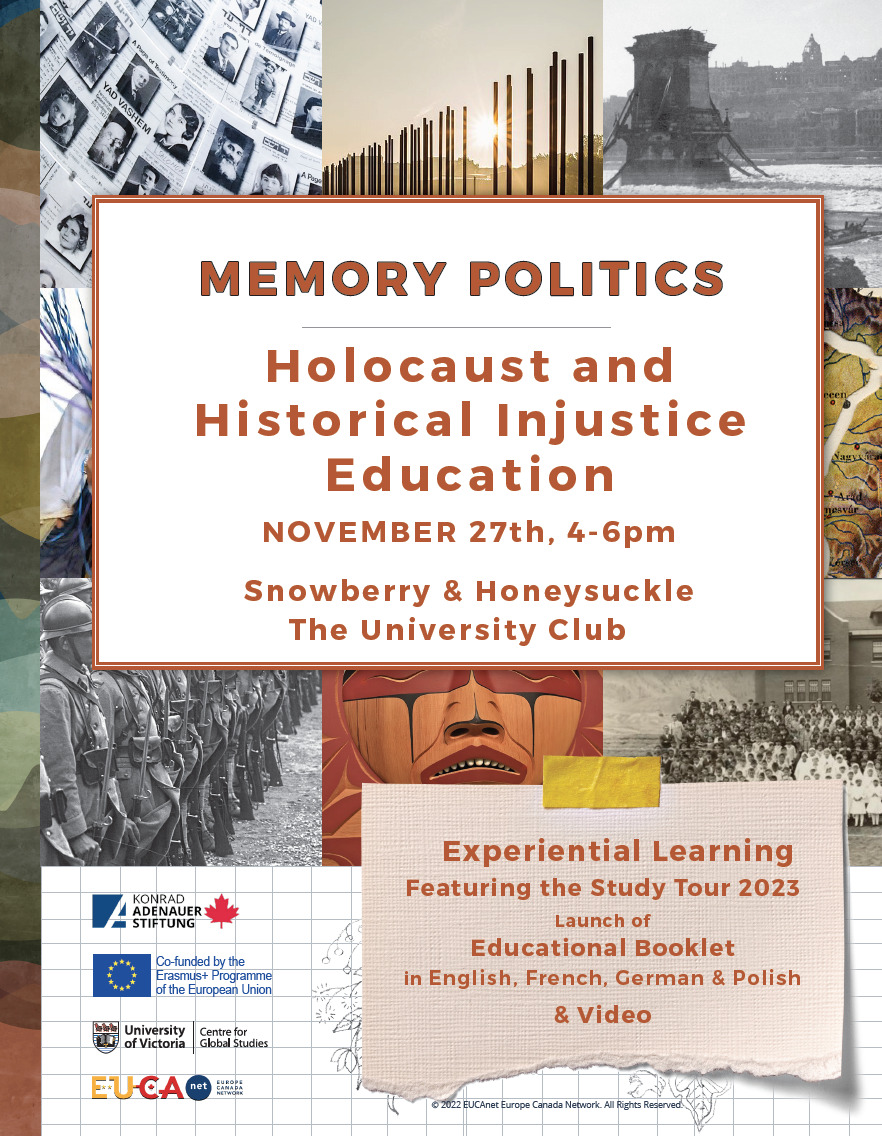Expert interviews on governing irregular migration and refugees
The video series is part of the activities for the project “Governing irregular migration and refugees”.
Playlist “Governing Irregular Migration and Refugees”
Dr. Oliver Schmidtke highlights in this video the growing challenge of governing irregular migrants and refugees, emphasizing the global scale of forced displacement, with 177 million people displaced in 2023 due to war, violence, and environmental degradation. Western democracies, rooted in human rights commitments, face a moral obligation to help these individuals, as seen in frameworks like Germany’s Basic Law and the European Charter of Fundamental Rights.
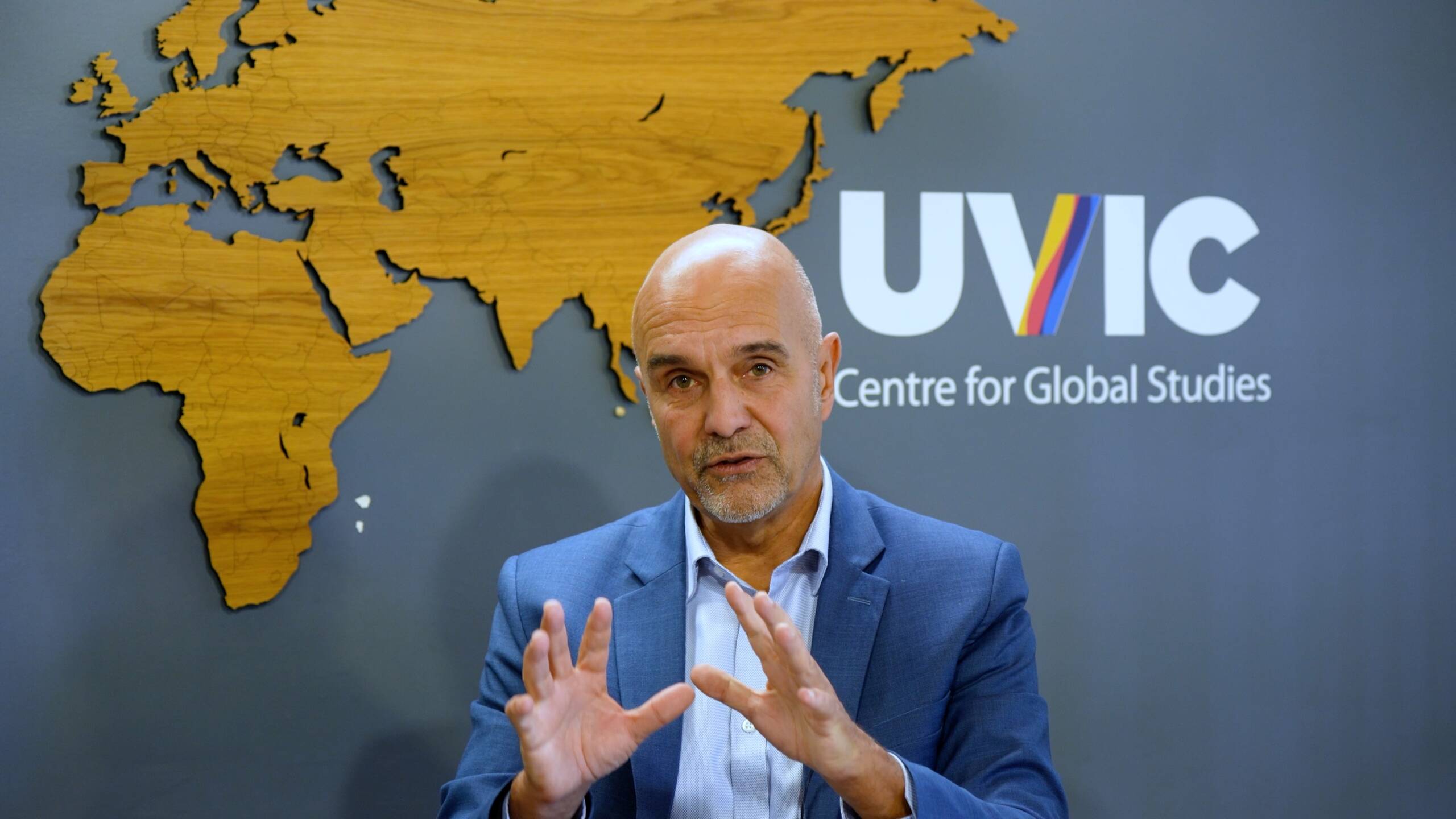 However, this humanitarian commitment clashes with political realities, especially in the face of rising right-wing populism and anti-immigrant sentiments. These movements have capitalized on fear of migrants, making it difficult to foster public support for accommodating refugees. Schmidtke emphasizes the complexity of managing this issue, as it requires coordinated action across multiple levels of governance—national, regional, and local. The project seeks to explore solutions for balancing humanitarian obligations with political challenges, seeking expert insights on how to navigate polarized contexts and develop fair, effective policies for addressing the global refugee crisis. Ultimately, Schmidtke calls for innovative approaches that uphold democratic values while recognizing political and resource limitations.
However, this humanitarian commitment clashes with political realities, especially in the face of rising right-wing populism and anti-immigrant sentiments. These movements have capitalized on fear of migrants, making it difficult to foster public support for accommodating refugees. Schmidtke emphasizes the complexity of managing this issue, as it requires coordinated action across multiple levels of governance—national, regional, and local. The project seeks to explore solutions for balancing humanitarian obligations with political challenges, seeking expert insights on how to navigate polarized contexts and develop fair, effective policies for addressing the global refugee crisis. Ultimately, Schmidtke calls for innovative approaches that uphold democratic values while recognizing political and resource limitations.
Interview with Shelly D’Mello, Chief Executive Officer, Inter-Cultural Association of Greater Victoria:
Settling Newcomers in an Urban Setting: Integrating Refugees in Victoria. The video discusses the work of the Inter-Cultural Association (ICA) in Greater Victoria, highlighting its role in immigration, settlement, and integration programs. It emphasizes that change for good is happening, as more interconnected and complex issues surrounding migration are being addressed. One major challenge in integration is language; newcomers need language services not only to communicate but also to advocate for themselves and contribute to society. The video shows that shifts are occurring, demonstrating that immigrants, including those coming through programs like the ICA’s, are making positive contributions to Canada’s wellbeing. The video compares the settlement and integration experiences of economic immigrants and refugees, noting that refugees come to Canada out of necessity, not choice. Canada recognizes the differences

between these two groups and adapts its programs accordingly to support their unique needs. The ICA’s Private Sponsorship of Refugees (PSR) program is praised for its community-driven, inclusive nature. It emphasizes the importance of not just monetary support, but the emotional and social support provided by the community. This unique aspect of the PSR program helps refugees with their mental health and provides them with a space to process grief and trauma. The video also highlights how the ICA’s programs positively impact Canadian society, fostering empathy and compassion. Immigrants are vital to Canada’s economic prosperity, though the video acknowledges the rise of anti-immigrant sentiment during election times, which can create divisive conversations. Finally, the video stresses the need for improvements in language and mental health services. If all necessary resources were available, the focus would be on addressing the social determinants of health, shifting from a scarcity mindset to a growth mindset, and recognizing the vital role immigration plays in improving the nation’s health and prosperity.
Interview with Dr. Antje Ellermann, Founder and Co-Director of the Centre for Migration Studies, University of British Columbia
In this interview, Dr. Ellermann discusses key issues related to immigration policy, particularly the challenges and strategies of integrating immigrants and refugees. Dr. Ellermann highlights the importance of balancing humanitarian commitments with the realities of political and social pressures in receiving countries. She emphasizes that immigration is a global issue that requires both national and local government involvement to effectively address, focusing on settlement, inclusion, and the challenges posed by right-wing nationalism and anti-immigrant sentiments.
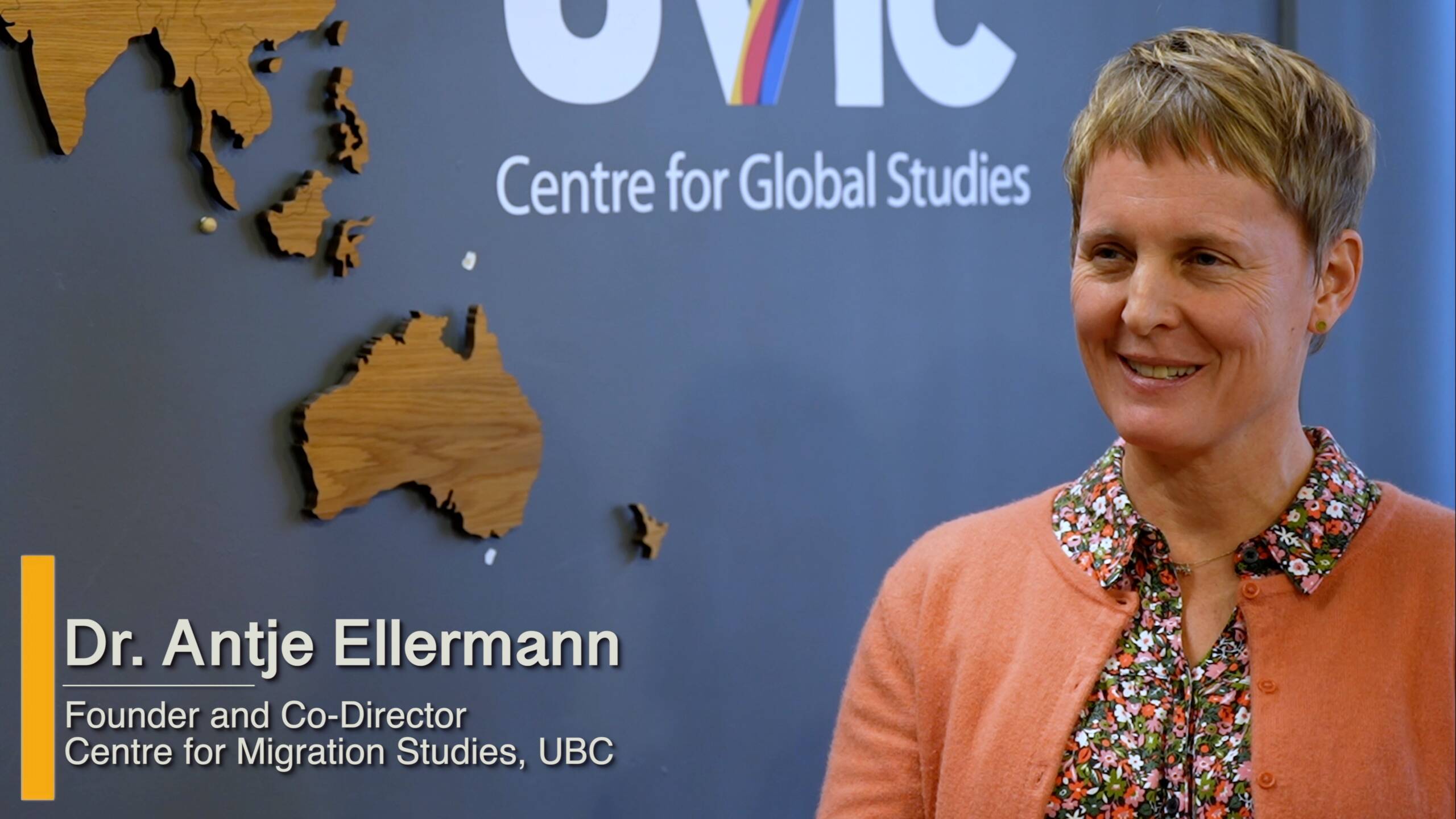
Dr. Ellermann focuses on Canada and its track record of relatively liberal immigration laws and generous access to citizenship. One core feature that makes the Canadian context distinct is the intersection between the country’s colonial legacy and its commitments to including newcomers in a multicultural society. For her, recognizing the history of Indigenous peoples, the account of past injustices committed by European settlers, and Indigenous rights is essential in the conversation about the integration of newcomers into Canadian society.
Dr. Ellermann also draws attention to the specific needs of refugees settling in Canada and the pressures they face in particular with a view to socio-economic and mental health challenges. In this context, she points to how Canada’s community-based network of organizations plays a critical role in Canada’s immigrant and refugee integration system on the ground. She illustrates the importance of this community centred support structure with reference to Neighbourhood Houses in Greater Vancouver that allow newcomers to build relationships with long-term residents in a welcoming, inclusive environment.
Interview with Dr. Harald Bauder, Toronto Metropolitan University
In the interview, Dr. Harald Bauder discusses the connection between immigration policy and Indigenous perspectives, which is rarely addressed in scholarship or public debate. Dr. Bauder highlights the contradiction in Canada’s national identity as a “country of immigrants” while excluding Indigenous claims to belonging. He argues that immigration and colonialism are historically linked, yet these issues are often treated separately in political discussions.
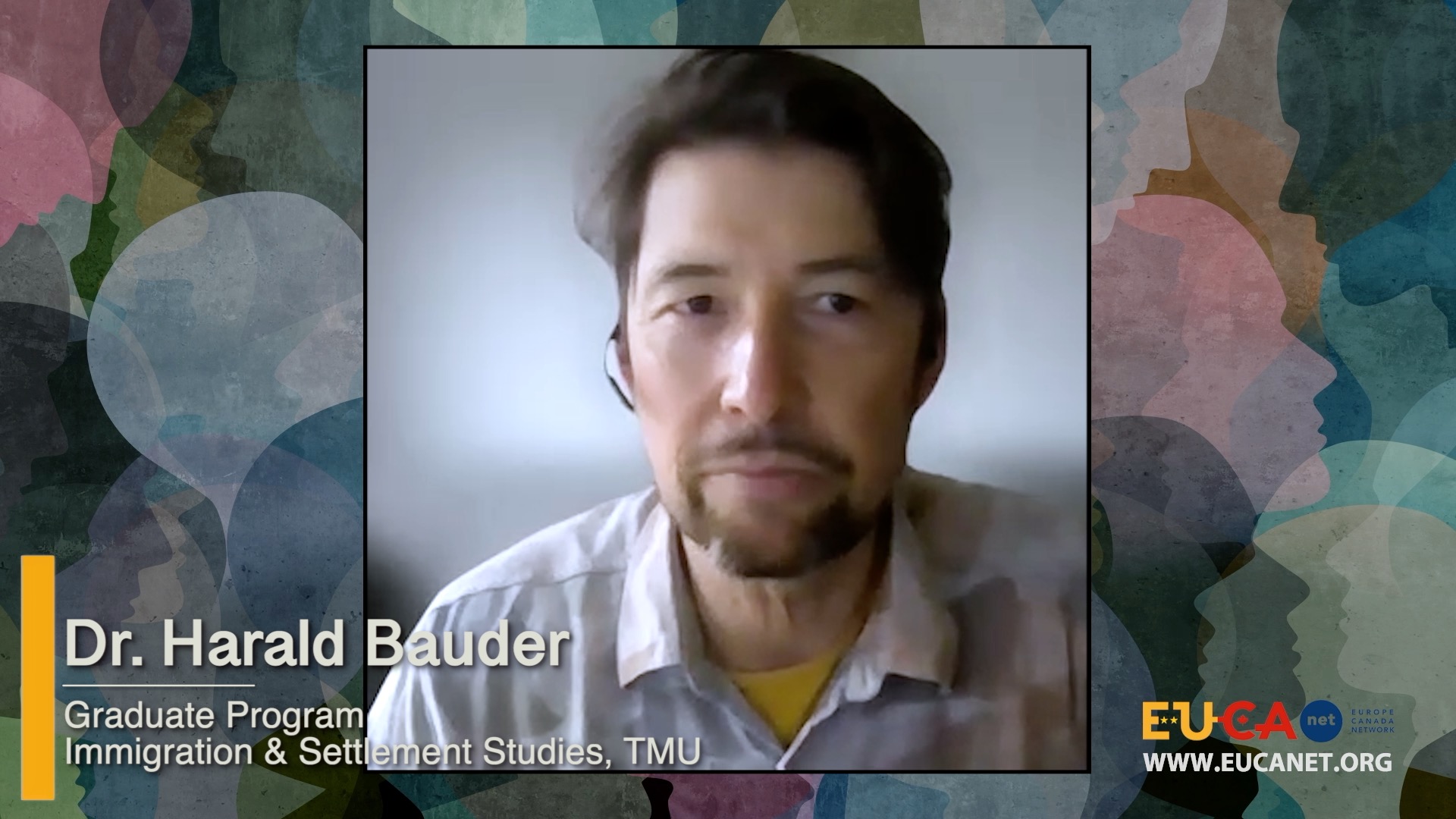
Dr. Bauder notes that Indigenous communities generally support immigration but expect newcomers to acknowledge colonial history and respect Indigenous governance and treaties. He also questions whether reconciliation can occur within the Canadian state framework.
Dr. Bauder then explores urban approaches to immigration, particularly in “sanctuary cities,” which prioritize solidarity and inclusivity over the exclusionary, sovereignty-based policies of nation-states. He suggests that cities offer a model for more compassionate immigration practices. Dr. Bauder predicts that tensions will rise between municipal and national governments, especially in the U.S., where sanctuary city policies may clash with federal deportation efforts. Overall, Dr. Bauder advocates for integrating Indigenous perspectives and urban solidarity in shaping immigration and settlement policies.
Interview with Dr. Dagmar Soennecken, York University
In this interview, Dr. Sönnecken specializing in law, society, and public policy, discusses her work on the selection, resettlement, and integration of refugees, with a focus on the concept of “vulnerability.” She explains how the term has become central in international law and policymaking, though it remains controversial because it risks stereotyping refugees as mere victims. Despite this, vulnerability has become a politically useful tool for selecting refugees, as it allows policymakers to highlight certain groups as “deserving” of protection.
Dr. Sönnecken reflects on the challenges in refugee selection processes, including the balancing of criteria and political motivations behind resettlement decisions. She notes the tension between selecting refugees who are deemed most vulnerable and the broader ethical question of whether all those fleeing persecution should be considered vulnerable. She critiques the arbitrary nature of selection, where quotas and bureaucratic constraints sometimes limit who gets protection, despite the universal need for it.
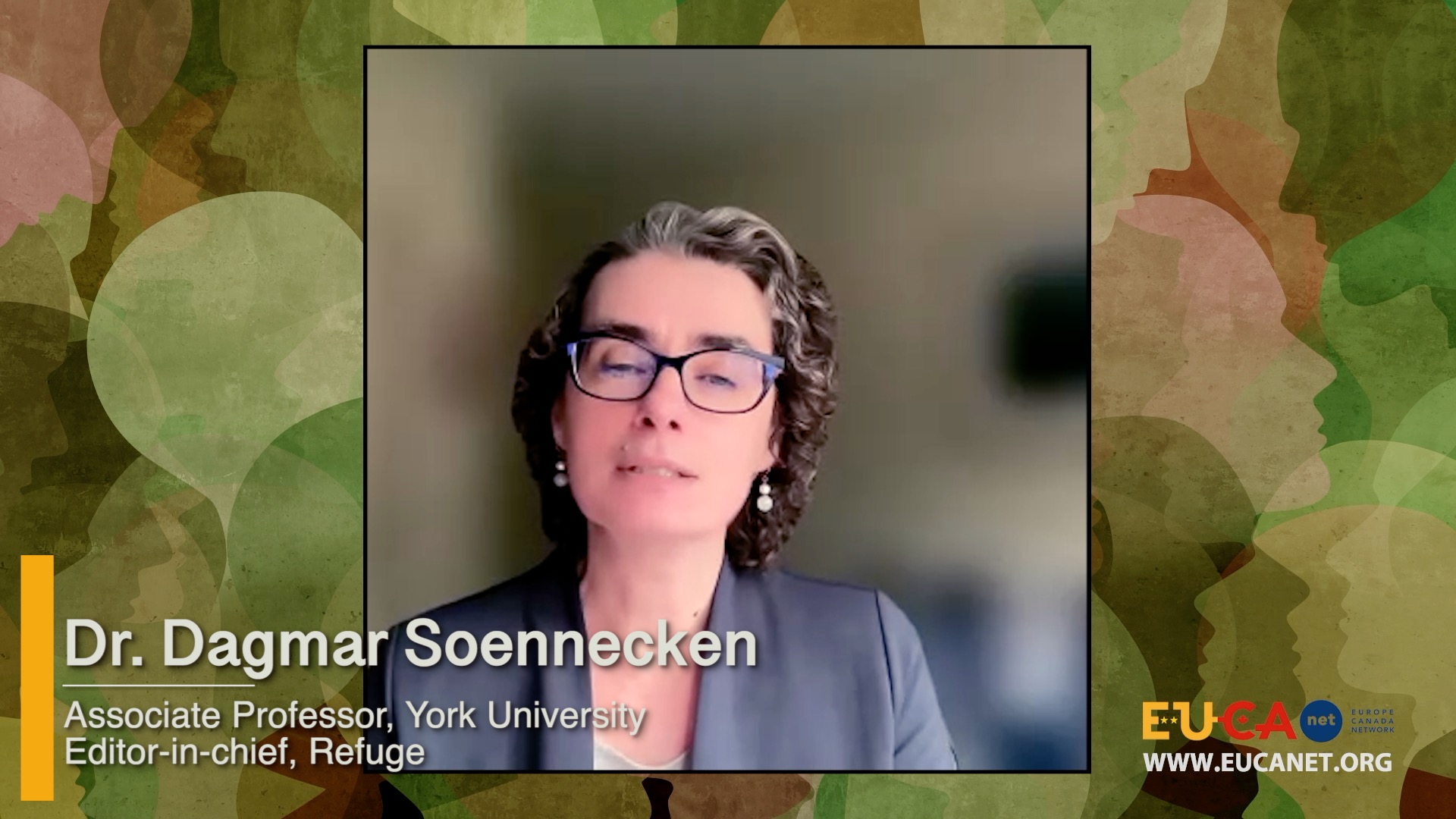 She also explores the strained capacity of countries like Canada and Germany to respond to growing refugee needs, highlighting gaps in communication between governments and local communities, which often lack detailed information about the refugees’ needs. Dr. Sönnecken emphasizes the need for better collaboration and data-sharing to improve resettlement and integration processes.
She also explores the strained capacity of countries like Canada and Germany to respond to growing refugee needs, highlighting gaps in communication between governments and local communities, which often lack detailed information about the refugees’ needs. Dr. Sönnecken emphasizes the need for better collaboration and data-sharing to improve resettlement and integration processes.
She acknowledges that while international frameworks like the Global Compact for Refugees aim to address these issues, progress has been slow, particularly due to political pressures and resource constraints. Local communities, for example, often push back against accepting more refugees due to limited resources, which exacerbates tensions. However, Dr. Sönnecken sees some positive signs, such as the Canadian Immigration and Refugee Board incorporating research from her project into its guidelines, signaling a move towards more evidence-based policymaking.
In conclusion, Dr. Soennecken stresses the importance of creating legal pathways for refugees and recognizing their contributions to society, rather than framing them as burdens. She believes that despite political challenges, evidence-based approaches can help improve the refugee resettlement system, and that there is potential for more collaboration between academics, policymakers, and civil society in tackling these issues.
Interview with Dr. Hannes Schammann, University of Hildesheim
In this interview, Dr. Schammann discusses the challenges and opportunities of migration governance at the local level, particularly in Germany. He explains that local municipalities play a key role in translating ambiguous national migration policies into practical solutions. While municipalities vary widely in their responses, they often operate with a pragmatic, results-oriented approach rather than ideological or party-political agendas. Dr. Schammann emphasizes that local actors, particularly mayors and key figures in municipal administrations, can play transformative roles in managing migration, even in less-resourced or rural areas.
He also addresses the shift in public discourse surrounding migration, noting that while initial debates focused on managing the influx of refugees, the narrative has since shifted to concerns about affordability and cultural integration. Despite this, Dr. Schammann highlights cases where municipalities have taken innovative actions to address refugee integration, like a mayor in a rural area who developed a strategic integration plan despite having limited resources.
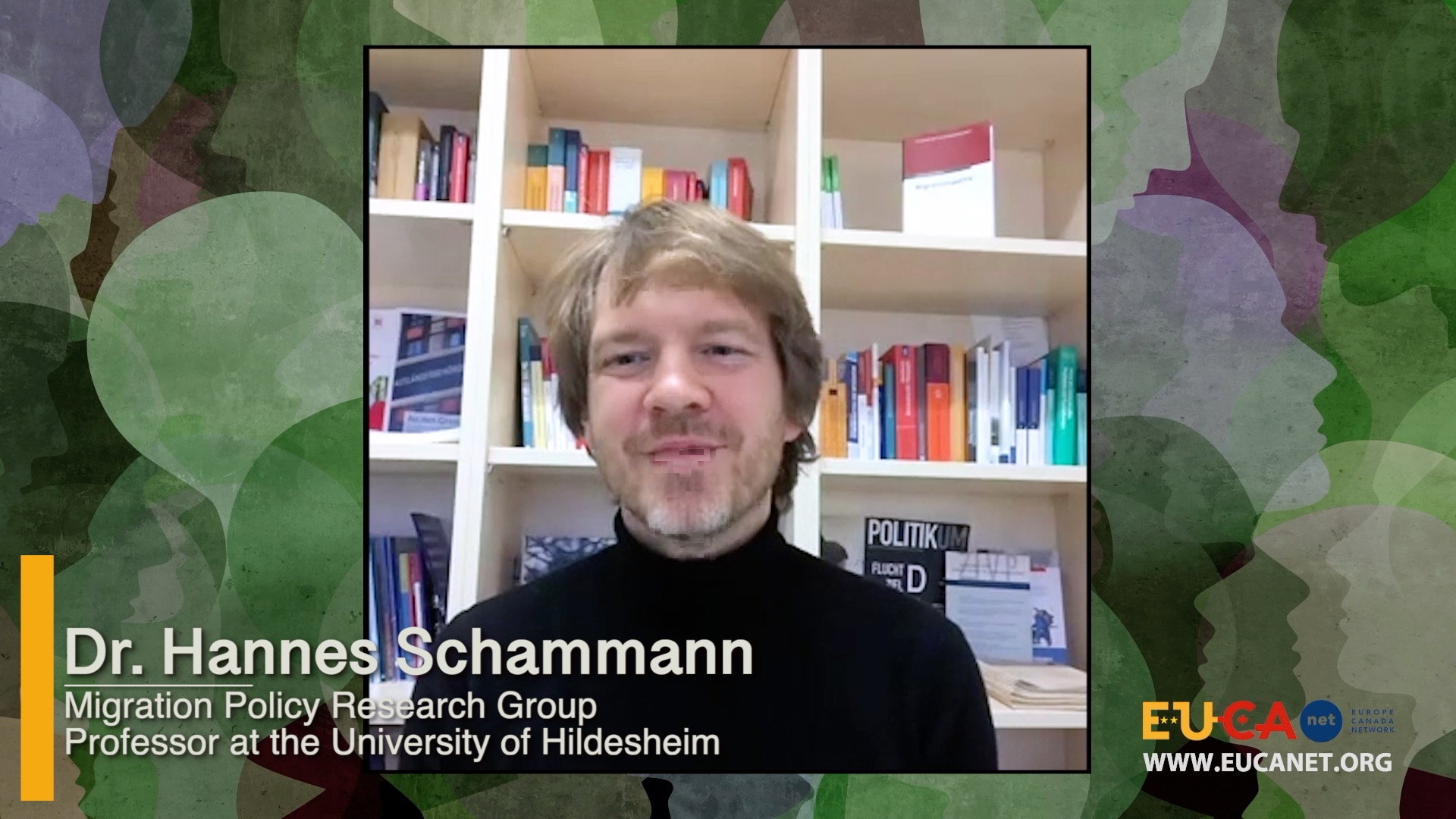
Dr. Schammann points out that the often-discussed notion of municipalities being “overwhelmed” by refugee numbers does not always reflect the reality on the ground. His research, which includes surveys of German municipalities, found that most municipalities felt they could manage refugee reception, despite the challenges. He also touches on the evolving discourse on the economic potential of refugees, noting that while some rural municipalities initially saw refugees as a way to mitigate labor shortages, this narrative has faded in recent years.
The interview concludes with Dr. Schammann sharing his work on the “Matching Project,” an initiative that uses an algorithm to match refugees with municipalities based on both the refugees’ needs and the municipalities’ capacities, aiming to create a more efficient and inclusive process for refugee placement. Dr. Schammann reflects on the value of transdisciplinary collaboration between academics, policymakers, and practitioners, stressing that innovation in migration policy comes from a deep, ongoing exchange of knowledge between these different spheres.
Interview with Dr. Ruben Zaiotti, Dalhousie University
Dr. Zaiotti provides a comprehensive assessment of the migration and asylum policy landscape in Europe, particularly in the aftermath of the 2015-16 migration crisis. He highlights the complexity of border management and migration issues within the European Union, exacerbated by the COVID-19 pandemic. While the acute crisis of 2016 has passed, the issue of migration remains prominent, with ongoing conflicts, such as the war in Ukraine, driving continued flows of migrants.
Dr. Zaiotti discusses the European Union’s efforts to establish a cohesive migration policy, particularly through the “Pact on Migration and Asylum,” agreed upon in June 2024. This pact outlines four key pillars: Strengthening external borders to control migration and address security concerns. Establishing common procedural rules for asylum applications across EU member states. Solidarity mechanisms to ensure a fair distribution of asylum seekers, addressing the unequal burden borne by border countries like Italy and Greece. Externalization of border control, where EU states work with third countries to manage migration before it reaches Europe, often through agreements like readmission deals.
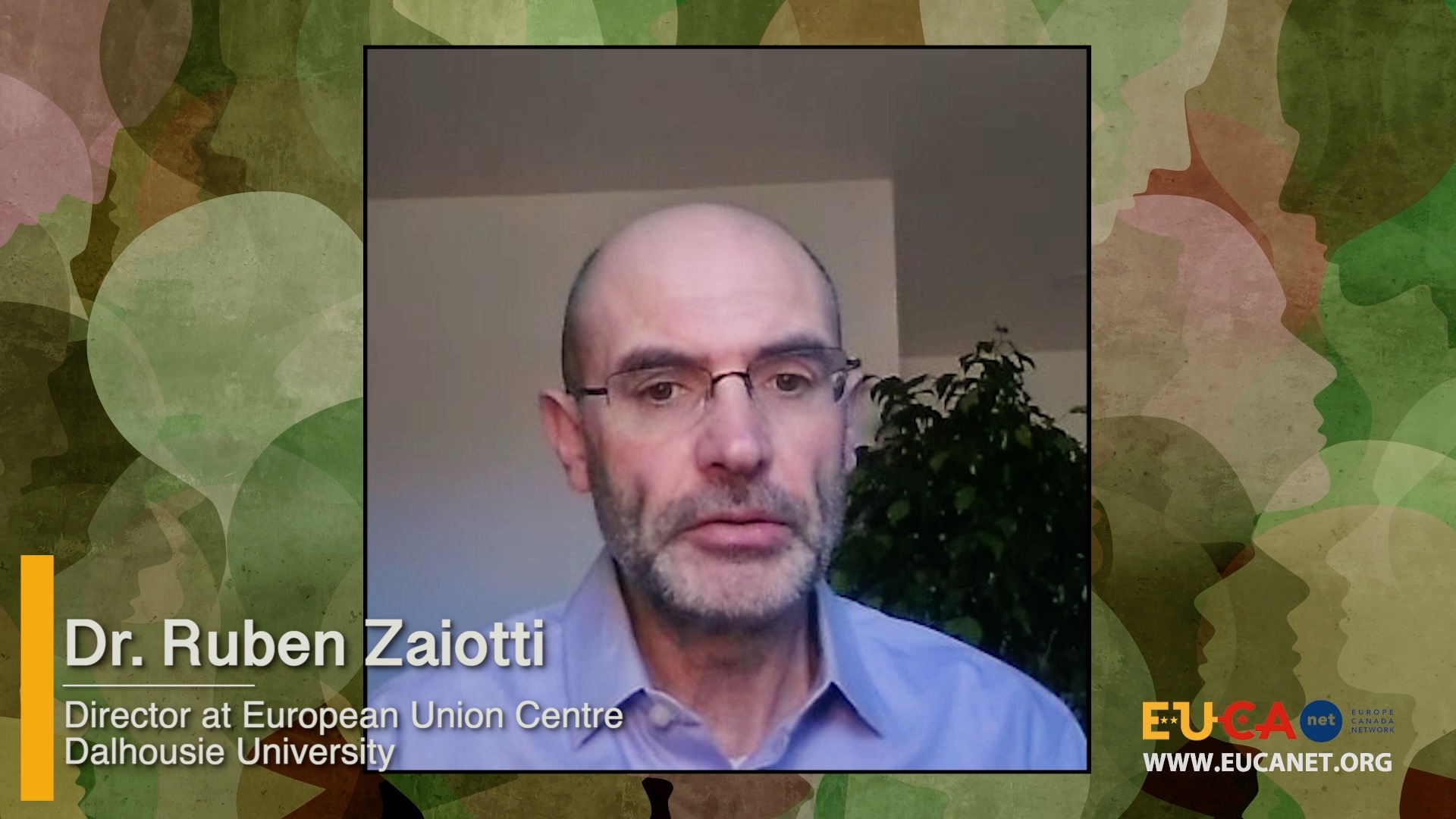 Dr. Zaiotti also examines Italy’s recent approach under Prime Minister Meloni, which seeks to process asylum claims outside the EU, notably in Albania. This represents an effort to externalize borders but has faced legal and practical challenges, particularly due to European court rulings that prevent sending asylum seekers to countries deemed unsafe. Zaiotti expresses skepticism about the success of such initiatives, citing past failures and the complicated legal, economic, and political factors involved.
Dr. Zaiotti also examines Italy’s recent approach under Prime Minister Meloni, which seeks to process asylum claims outside the EU, notably in Albania. This represents an effort to externalize borders but has faced legal and practical challenges, particularly due to European court rulings that prevent sending asylum seekers to countries deemed unsafe. Zaiotti expresses skepticism about the success of such initiatives, citing past failures and the complicated legal, economic, and political factors involved.
In discussing the broader humanitarian impact, Dr. Zaiotti stresses the tension between the EU’s legal commitments to asylum seekers and the exclusionary political pressures in various member states. He reflects on how policies shaped by political realities often conflict with the fundamental human rights of migrants. He draws parallels with similar trends in North America, particularly the U.S., where migrant labor contributes significantly to the economy but is often overlooked in political discourse.
Dr. Zaiotti concludes by acknowledging the importance of evidence-based policymaking, citing how the Canadian government has incorporated academic research into its immigration guidelines for vulnerable persons. He underscores the value of academic contributions to policy discussions, especially in addressing the complexities of migration and asylum.
Interview with Dr. Oliver Schmidtke, University of Victoria

Additional videos
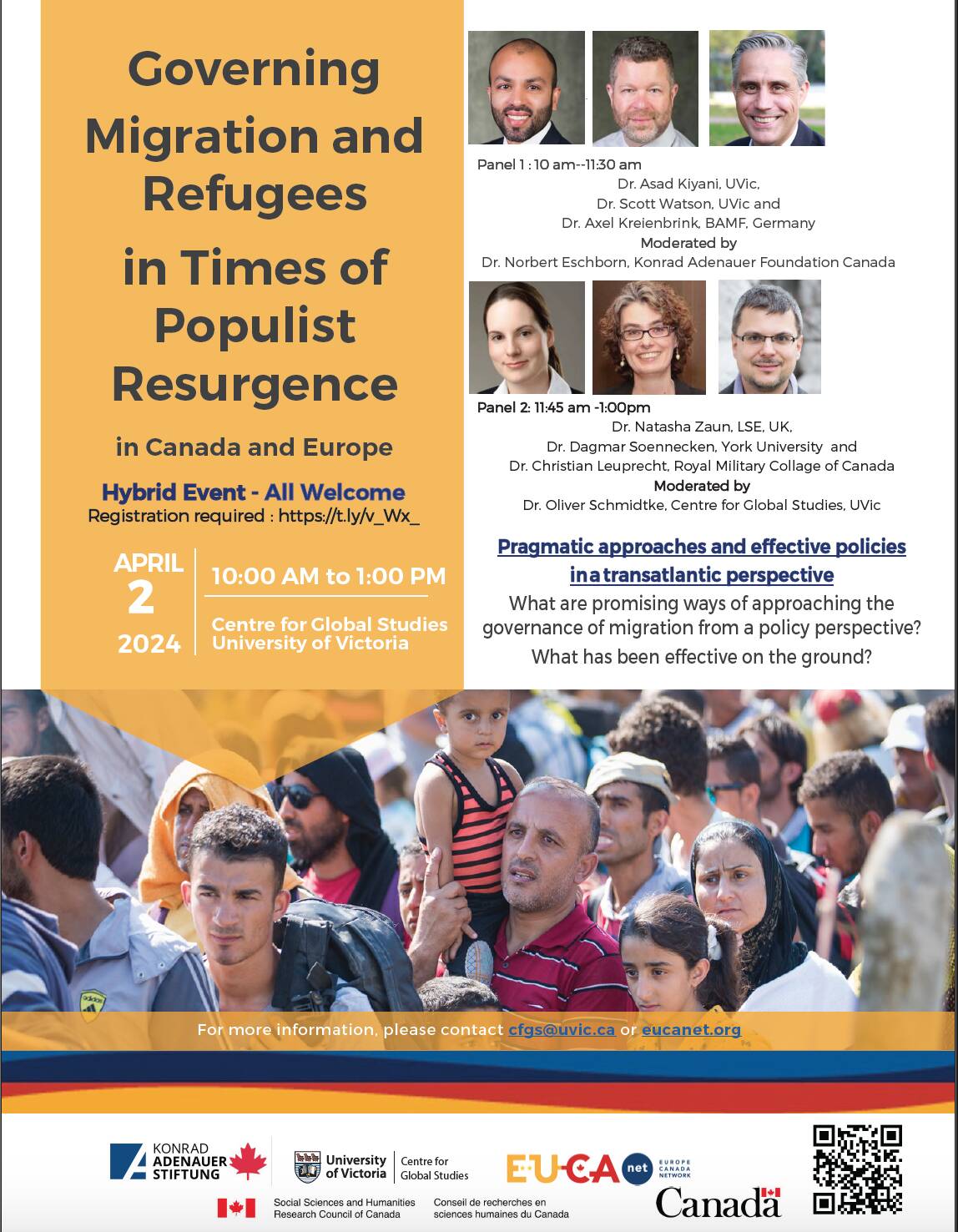
Governing Migration and Refugees in Times of Populist Resurgence in Canada and Europe
Governing Migration and Refugees in Times of Populist Resurgence in Canada and Europe

